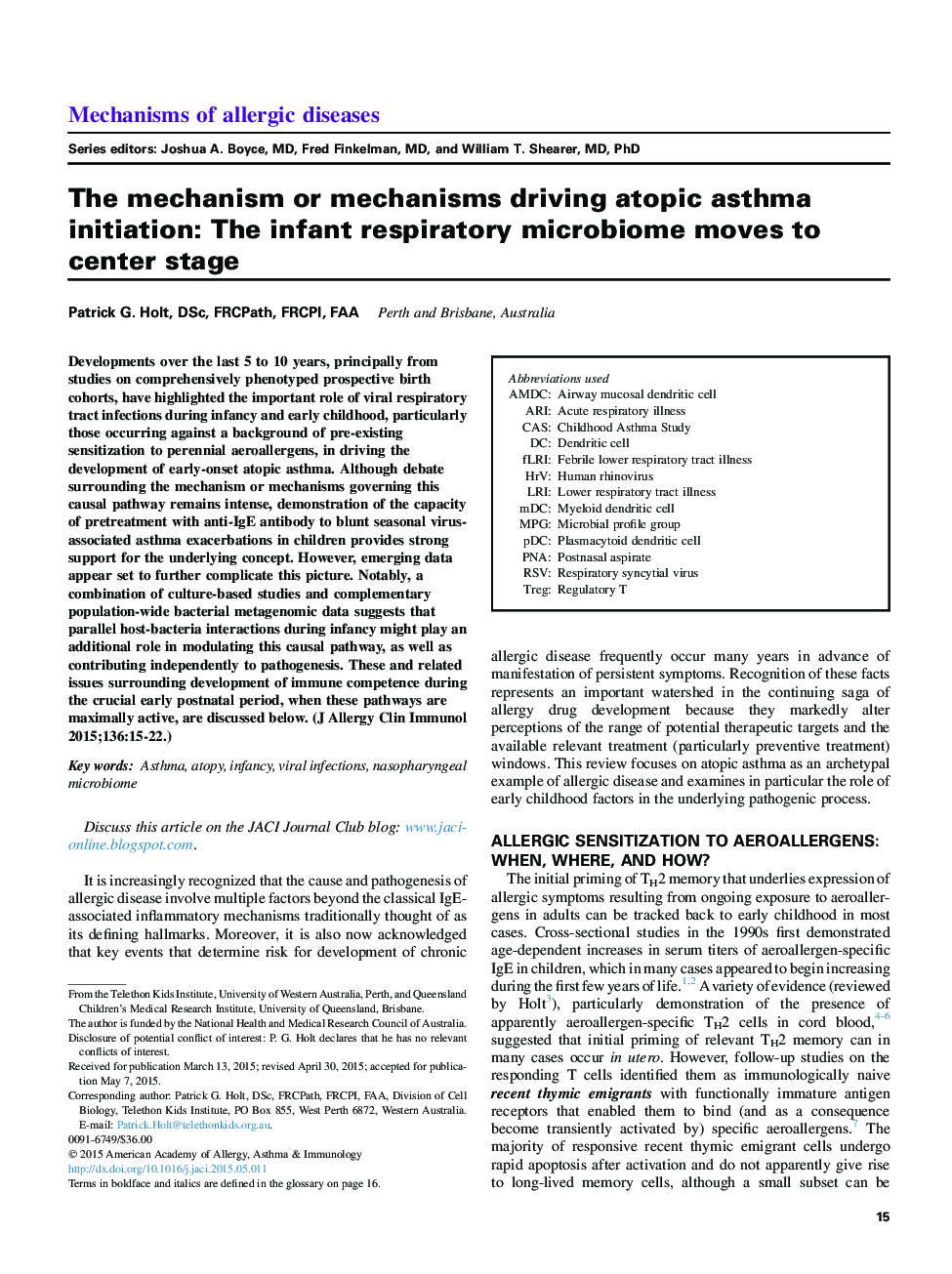| Article ID | Journal | Published Year | Pages | File Type |
|---|---|---|---|---|
| 6063718 | Journal of Allergy and Clinical Immunology | 2015 | 8 Pages |
Developments over the last 5 to 10 years, principally from studies on comprehensively phenotyped prospective birth cohorts, have highlighted the important role of viral respiratory tract infections during infancy and early childhood, particularly those occurring against a background of pre-existing sensitization to perennial aeroallergens, in driving the development of early-onset atopic asthma. Although debate surrounding the mechanism or mechanisms governing this causal pathway remains intense, demonstration of the capacity of pretreatment with anti-IgE antibody to blunt seasonal virus-associated asthma exacerbations in children provides strong support for the underlying concept. However, emerging data appear set to further complicate this picture. Notably, a combination of culture-based studies and complementary population-wide bacterial metagenomic data suggests that parallel host-bacteria interactions during infancy might play an additional role in modulating this causal pathway, as well as contributing independently to pathogenesis. These and related issues surrounding development of immune competence during the crucial early postnatal period, when these pathways are maximally active, are discussed below.
